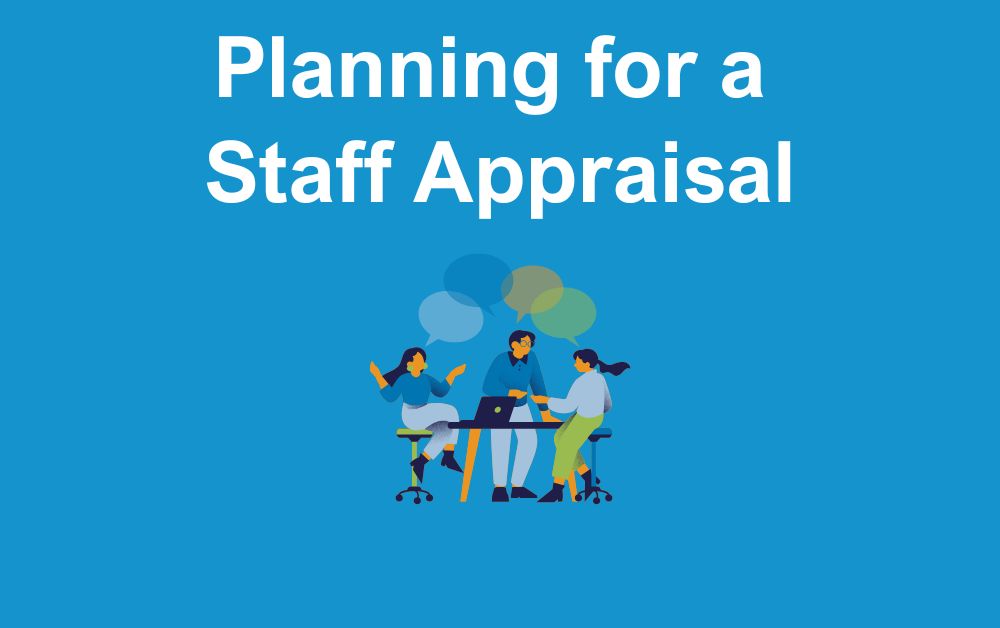A staff appraisal, also known as a performance review or evaluation, is a crucial process within any organisation. It offers an opportunity for employers and employees to discuss performance, set future goals, and identify areas for development. Understanding the importance of this process and how to prepare for it as an employer is essential for building a productive, motivated, and engaged workforce.
What is a Staff Appraisal?
A staff appraisal is a structured, formal meeting between an employee and their manager or supervisor to evaluate the employee’s job performance over a specific period, typically annually or bi-annually. The meeting provides an opportunity to assess achievements, review any challenges faced, and align on objectives moving forward.
The key objectives are:
- Performance Review: It allows managers to provide constructive feedback, recognising the employee’s strengths and addressing areas for improvement.
- Goal Setting: provides a platform to set short- and long-term goals that align with the organisation’s objectives.
- Career Development: Employees can express their career aspirations, and employers can outline potential training or development opportunities.
- Motivation: Recognising an employee’s achievements and offering rewards or opportunities for growth can significantly boost morale and productivity.
How to Prepare for a Staff Appraisal
Preparation is key to conducting a meaningful and productive appraisal. Here’s a guide to help you get ready:
1. Review Employee Performance
Before the meeting, take the time to thoroughly review the employee’s performance over the period being assessed. Look at:
- Key performance indicators (KPIs): Assess if the employee has met the targets set at the last appraisal.
- Achievements and contributions: Identify notable accomplishments or projects that the employee has completed successfully.
- Challenges faced: Consider any obstacles the employee has encountered and how they have worked to overcome them.
2. Gather Feedback
If you have received any feedback from supervisors or clients who have worked closely with the employee, collect this information to share at the meeting. This 360-degree feedback provides a comprehensive view on how things have positively progressed since your last meeting.
3. Reflect on Development Opportunities
Before conducting the appraisal, consider the employee’s current skill set and how it aligns with their role and future career progression. Identify any training needs or development opportunities that could help them grow in their role or prepare for future responsibilities.
4. Set Clear Objectives
Prepare to set measurable, attainable goals for the next appraisal period. These should align with the company’s wider strategic objectives but also consider the employee’s personal development and career aspirations.
5. Prepare Documentation
Ensure you have all relevant documents to hand before the meeting, including:
- Previous appraisal notes
- Performance data (e.g., sales figures, project outcomes)
Having all this information ready will make the conversation smoother and demonstrate to the employee that you have invested time and thought into their review.
6. Plan the Conversation
Think about how you will structure the meeting. Focus on creating a balanced discussion, where the employee feels comfortable sharing their thoughts. Outline:
- Positive feedback to celebrate achievements
- Areas for improvement, using specific examples
- Future goals and how they align with the employee’s development
7. Foster a Positive Atmosphere
The tone of the performance review meeting is just as important as the content. Create an environment where the employee feels comfortable and valued. Be open to listening, and encourage honest dialogue. Appraisals are not just about feedback from employer to employee but also an opportunity for employees to express any concerns, ambitions, or ideas they may have.
The Importance of Staff Appraisals
- Enhances Communication: this facilitate open, two-way communication between employees and employers. This interaction is an opportunity for employees to discuss their roles, raise concerns, and receive clarity on expectations.
- Improves Performance: By highlighting both strengths and areas for improvement, this type of meeting can boost employee performance. Constructive feedback helps employees understand how they can improve their work and contribute more effectively to the organisation’s goals.
- Encourages Professional Development: This can help identify gaps in skills and knowledge, guiding the creation of personalised development plans. Employees feel valued when their growth is supported, leading to higher engagement and retention.
- Aligns Individual and Organisational Goals: When employees know how their work contributes to the broader objectives of the company, they are more motivated to perform well. Appraisals ensure everyone is working towards the same goals.
- Promotes Fairness and Transparency: A structured appraisal process ensures that all employees are reviewed using consistent criteria, fostering a sense of fairness within the workplace.
- Identifies Any Issue: Holding regular appraisal meetings allows you to identify any issues in the workplace quicker. Regularly meeting staff in this way allows you to solve any issues before escalating further.
Conclusion
Staff appraisals are vital for maintaining a motivated, high-performing workforce. They not only provide an opportunity to review and improve performance but also foster open communication and professional development. By preparing thoroughly, gathering feedback, and setting clear, achievable goals, employers can make the performance review process a valuable tool for growth and engagement.
Taking the time to conduct well-structured appraisals will help create a positive company culture, improve retention, and drive the overall success of your business.







